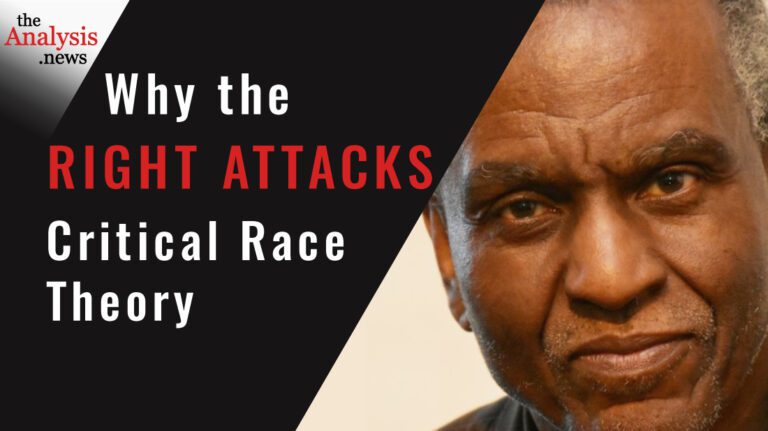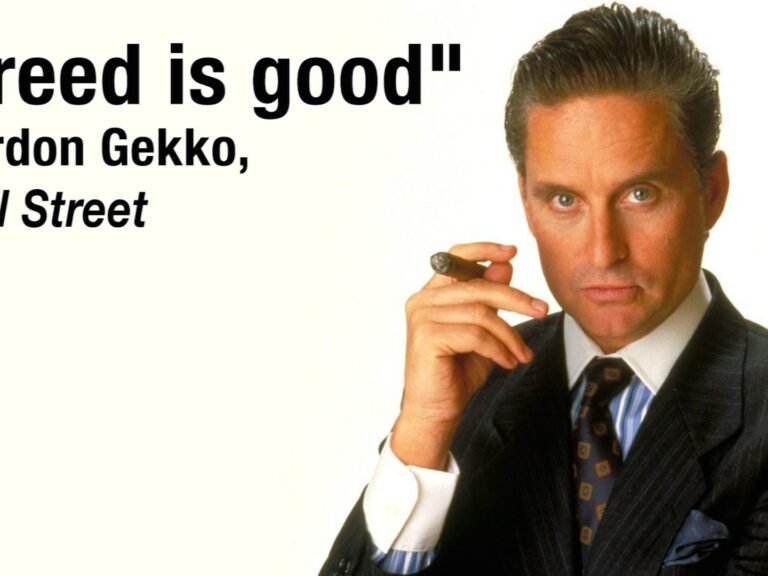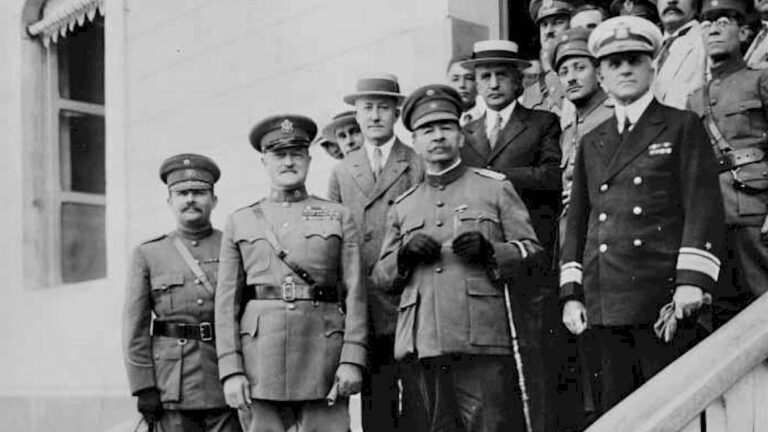This interview was originally released on August 21, 2017. On Reality Asserts Itself with Paul Jay, Troy LaRaviere says that the “parasitical wealthy” should be fought for control of the Democratic Party.
Paul Jay: Welcome back to Reality Asserts Itself on the Real News Network. I’m Paul Jay. Joining us again for our continuing discussion on education and the politics of Chicago, and now we’re going to move into a bit of the politics of the Democratic Party, is Troy LaRaviere. Thanks for joining us. One more time, Troy used to be a school principal at Blaine Elementary School and Vice Principal at another school, but he was removed after speaking out against Rahm Emanuel and his handling of the Chicago Public School system. He’s now running the Chicago Principal and Administrator’s Association, and he’s exploring a run for mayor himself. Thanks for joining us.
Troy LaRaviere: Yes.
Paul Jay: We’ve been talking about the schools and the school policy. A lot of this comes down to the issue of the fight within the Democratic Party. This is like Baltimore. Chicago is a Democratic Party city. I don’t know the last time there was a Republican mayor.
Troy LaRaviere: Not in my lifetime.
Paul Jay: Yeah. You can’t elect a Republican in Baltimore as dogcatcher. I think it’s probably not so different in Chicago. These are very concentrated places where this fight in the Democratic Party takes place. We talk about this a lot on the Real News, and I’ve said many times that the Democratic Party is no different than the rest of society. There’s a class structure within the party, and there is an oligarchy that controls most of the machinery of the party. Bernie Sanders waged a primary campaign and challenged that oligarchy in the Democratic Party, and you came out for Sanders. We’re going to play a little bit of a commercial that Troy did advocating for Bernie Sanders. Here’s some of that. So I mentioned earlier that coming out for Bernie Sanders, and coming out against Rahm Emanuel is not the best career move for someone who might want a career within the Democratic Party, or at least not the normal career against the Democratic Party, but how do you envision the bigger struggle in the party? There’s Bernie Sanders, there’s people like Nina Turner, there’s a lot of organizations that are planning to primary right-wing Democrats, I guess, in a sense that’s what you’re exploring. When you say running against Rahm Emanuel, that doesn’t mean in the election, I assume, it means in a Democratic Party primary, right?
Troy LaRaviere: There are no primaries in Chicago.
Paul Jay: Oh, there are no-
Troy LaRaviere: It’s just … There’s an election, and whoever gets the majority in that election wins. If no one gets the majority, there is a second election between the top two vote-getters. That’s what happened in the last election. There was a general election. The mayor was not able to get 50%. Chuy Garcia got enough of the vote to force a run-off. The run-off was held about a month and a half later, if I remember correctly, and of course, unfortunately, Emanuel prevailed in that run-off. But there’s no party election on the municipal level in Chicago, for the Chicago mayor’s race.
Paul Jay: That’s because it’s all within the Democratic Party anyway.
Troy LaRaviere: Right.
Paul Jay: How do you see this wider struggle? It’s very concentrated in Chicago, but it’s a reflection of a wider struggle. Is the Democratic Party … I guess, in some ways, because it isn’t a primary issue in Chicago, it’s not quite the same issue as the national struggle. But is the Democratic Party worth fighting for? Is it something that can be changed? Is this kind of insurrection Sanders-esque? What will become of that?
Troy LaRaviere: I’m so glad you asked that. I think asking if the Democratic Party is worth fighting for is almost like asking is America worth fighting for, right? The party itself is the object of contestation. There are different forces fighting for control of that party, just like there are forces fighting for control of this country, like there are forces fighting for control of our state, like there are forces fighting for control of our city. These are all institutions subject to the control of certain people in groups in this country, and the ones that matter most right now, in terms of looking at the source of many of the problems in America, in Illinois, in Chicago, are what I typically call wealthy parasites. I don’t think all wealthy people are parasites, but there is a subgroup of the wealthy who seem to have as their sole goal in life to squeeze as much as wealth out of the rest of us as they possibly can. In order to do that, they wage war at every level they possibly can. They wage war for control of the Republican Party, they won that one outright. They’re waging a war for control of the Democratic Party, control of every city in this country, every state in the country itself. Every institution is a field in which they fight for control, and so asking whether or not the Democratic Party is worth it is like saying, let’s just hand it to them. If we’re going to take that attitude, we might as well hand them the city. Hand them they state. Hand them the county. Hand them the country. We have to fight the battle wherever the battle can be fought. I think we can actually wage a war for control of the Republican Party, frankly. I’m not for just giving that up. I think there are people within that party who are people-centered, who have a … There are certainly folks who have a working-class mentality, who seem to misidentify with the politicians they elect. I think that it’s worth it to try and win the hearts and minds of those people as well. And if I think it’s worth winning their hearts and minds, for control of that party, I certainly think it’s worth waging a war for the hearts and minds and control and the soul of the Democratic Party.
Paul Jay: Part of that fight is against the kind of corporate Democrat, as it’s called, policies that were associated with Bill Clinton, but also Barack Obama. The way Barack … Barack Obama was very much about Rahm Emanuel. The two of them were on the same page. I never heard that they were on other, different pages from each other, in terms of how they dealt with the ’07, ’08 crisis. Even education policy, this issue of testing and all the rest. This fight … Some people are suggesting, though, that the fight within the Democratic Party, the fight against corporate Democrats, kind of splits the opposition to Trump, and so, we should be quiet on this fight right now, and just focus all the guns on Trump.
Troy LaRaviere: I don’t agree. To some extent I don’t, and to some extent I do. Let me answer it this way: I think oftentimes people who consider themselves progressives will sacrifice winning the war with their enemy in order to fight a battle with their allies, to the extent … It just depends on what the current fight is at the time. If we need to unite in opposition to Trump, whomever is in opposition to Trump, whether it be the neoliberal wing of the Democratic Party, or the progressive wing of the Democratic Party, we need to join with them to defeat that enemy, to defeat that opposition. But there are also battles we wage on issues, or on control of a particular local party, and at that point, we have to have that fight. Am I making sense here?
Paul Jay: Yeah. I know it’s a complicated balance.
Troy LaRaviere: For example, I will join with Rahm to fight Trump, but then the battle has to be had with Rahm, too. Am I making sense?
Paul Jay: I guess the problem is, is that in my mind, the policies of Barack Obama and Rahm Emanuel, it’s not just them individually, it’s a whole philosophy of hypercapitalism, privatization. We know the numbers. The distribution of income after ’07, ’08 crisis, I think, was 90% of recovery of income went to less than 1% of the population.
Troy LaRaviere: Right.
Paul Jay: Those policies created the conditions for Trump. I think sometimes what happens in this idea that you have to unite to defeat Trump is that you don’t keep reminding everyone that it’s the Chuck Schumers of the world, that it’s the corporate Democrats of this world, including Barack Obama, it needs to be said, helped create the conditions for such economic disparity and inequality, that this laid the groundwork for sections of the working force to vote for Trump that wouldn’t otherwise if there hadn’t been such policies.
Troy LaRaviere: Absolutely. I agree. I am not for softening, or running on … When I say I will join, I don’t mean join with you on policies that I disagree with. When we’re talking about neoliberal Democrats and fighting Trump, we’re usually talking about social issues, not economic ones. On economic issues, they are Trump. On social issues, they’re not. So if there’s a social issue I can join with a neoliberal Democrat and fight this particular administration along the lines of that social issue, then we fight. But when it comes to economic issues, the type of issues that paved the way for the election of Trump, there’s no place where we can beet with the neoliberal wing of the Democratic Party. They have to be fought just as strongly as we fight with Republicans.
Paul Jay: But when I ask you, is the Democratic Party worth fighting for, there’s sort of an underlying assumption in what I’m asking. I don’t know whether you can ever rest the core of the machinery of the party out of the hands of corporate Democrats and oligarchs. The Russians are being accused of interfering in the elections, but people don’t want to keep remembering what the interference was, was they gave to Wiki, the same day the Russians gave, maybe … I’m not even convinced yet there’s enough evidence to say it was the Russians, but whoever did it, it was an expose of how the DNC undermined the Bernie Sanders campaign. The way the media works as well, there’s a lot of clout, weight, behind the corporate Democrats that will try to stop this kind of war, insurgency in the Democratic Party. At some point, and I’m not suggesting it’s now, but at some point, does there need to be another party, and if you think there might be, how do progressive forces get there?
Troy LaRaviere: It depends on what your strategy is at the time. If you want to win a presidential election? No. You need to take control of the Democratic Party, and I think the degree to which Bernie Sanders came that close to doing it shows that it is possible. If we have a candidate who can connect to the hearts and minds, and the needs, and the desires, and the hopes and dreams of a critical mass of people, we can take a Democratic primary. On a national level, on a state level, on a local level. There may be some local races in which you can have a third party that can oust a neoliberal Democrat who is in office. It’s about strategy. I don’t see any situation in which a third party can do anything but hurt progressives in a presidential election. In a presidential election, we have to put our energy into taking back the national Democratic Party. I think it’s all situation-based. It’s goal-based. What is the smart thing to do in this particular situation? In some instances, it may be a third party. In others, it may be let’s take the Democratic Party back.
Paul Jay: There’s a debate right now inside progressives and the Democratic Party over health care. One side is saying focus on the defense of the Affordable Health Care Act. Now that the recall has burnt, there’s probably going to be more emphasis on that. The other side is saying, including the nurses, others, the Nurses’ Union, that, head toward single-payer. Head toward Medicare for all, and that that is the only real solution, that the Affordable Health Care Act may have been better than nothing, but it was really not a solution. What’s your take on that?
Troy LaRaviere: I am with the nurses, that it is always best not to give … Don’t compromise and give up at the start of the debate. You push for your dream, right? Single-payer. I think that’s part of what happened when the Affordable Care Act was being negotiated. The President and his people gave up too much on the front end, and as a result, things like the public option were removed from it. They did not fight hard enough to keep that in. There was not enough strong public messaging to keep that in. Part of it is because that’s what they started with. They didn’t start with single-payer, and then maybe bargain down with having … bargain away that for a public option. They gave up single-payer in the beginning, and then began to argue with a public option, which they then had to bargain away.
Paul Jay: Because I think the Democratic Party leadership didn’t want a single-payer.
Troy LaRaviere: Many of them did not.
Paul Jay: They didn’t even allow it to be raised in the Senate hearings.
Troy LaRaviere: The President acted as if he did. I don’t know if he did or didn’t, but if he did, he gave it up too soon. Even if he didn’t, and he wanted a public option, then he should have started with single-payer and bargained down from that. When you give up so much ground in the beginning of negotiations, you give up to your opponents, and you give up in terms of the hearts and minds of the people, because now you’re seen as not budging. You’re seen as not budging because you started off budging. Am I making sense here? And so I think the same kind of logic should apply to the current negotiations, or the current public conversation about where health care should go. We have to push for single-payer, and push for it as strongly as possible. Whether we get it or not, we are advancing the argument for a health care system that gets as many Americans the health care they need as possible.
Paul Jay: Probably the biggest threat facing the people of Chicago, bar none, is the same threat facing the people everywhere else, and that’s climate crisis, climate change. Given that a denier of climate crisis, climate change, has been elected president, and they control the entire Federal Government, it looks like the only real breakthroughs, if there’s going to be any, are going to be at the level of cities and states. If you’re mayor of Chicago, and I’m interviewing you like you’re already running, how seriously do you take that? Even in the progressive discourse, I’m finding that there’s so many immediate issues like these school systems being destroyed, or in places like Baltimore, or Chicago for that matter, crazy high murder rates, and chronic poverty, and so on. But the existential crisis facing the whole society is climate crisis, and it barely gets talked about.
Troy LaRaviere: Right. As with any other issue, and I think I’ve mentioned this before, you have to focus on what we know, and have a messaging strategy. You’re trying to win hearts and minds. You’re trying to win hearts and minds, and you’re trying to get people active in fighting for a particular outcome. As with every other issue, we have to focus on what we know, and that means looking at what the research says, finding very cogent, easy-to-understand ways of talking about it relentlessly and repeatedly to try and create the demand for the change that you want to see happen, and a way to get people who are already convinced of the need for change involved in some collective actions. Some repeated, consistent, collective action to demonstrate and push for those changes.
Paul Jay: We talked a little bit off-camera between segments, and you were asking me, when I was kind of pressing you on this fight taking place and all that, what I meant by it all. I’ll phrase the question again: Whether it’s climate crisis, whether it’s schools, it seems to me real solutions, effective solutions, means taking on the oligarchy the way Sanders talks about.
Troy LaRaviere: Right.
Paul Jay: It’s going to be a real war. You’re talking about driving a stake into the heart of the very big economic interests. To do that, do you think the electoral process is enough? Don’t you not also need a very serious mass movement to go with the electoral politics?
Troy LaRaviere: Absolutely. I think that’s part of, when I talk about a messaging strategy, I’m not directing that strategy solely on getting votes. I mean, directing that strategy on helping to produce the kind of public consciousness that creates and informs mass movement. I don’t think there’s been any major social change in this country that has taken place purely on an electoral framework. There has always been a mass movement. There has always been people in the streets. There have always been strikes. There’s some kind of public stand that has to be taken by a critical mass of people, and anybody wanting to produce that change has to have a strategy of connecting with the grassroots and working with them to produce the kind of movement, the kind of demonstrations, the kind of public acts, the kinds of civic disobedience, that forces the powers that be to bend to the public will, and if that does not take place, it’s not going to happen.
Paul Jay: All right. Just finally, as someone who’s exploring again, running for mayor, not yet announced running for mayor … If you’re going to be mayor, you’re going to deal with policemen, and I know in Baltimore we’ve done a lot of coverage of the issue of policing, and one of the things that’s come up is a proposal for solving some of the problems, at least mitigating some of the abuses of policing, although it’s a two-sided problem: the abuses of policing, and then the violence that goes with chronic poverty. In terms of mitigating policing, is civilian control of police. Real control, where civilians … Some kind of, perhaps even elected, civilian oversight board, with the power to hire and fire a police chief. Something in that realm. What’s your thinking on that?
Troy LaRaviere: I think, to deal with police violence, there has to be a two-pronged strategy. One of them has to be an accountability, and the other has to be building the capacity of police themselves. I had a listening session with a group of policemen in Chicago, for example, and one of the things they talked about most was the lack of training and support that they have, or don’t have. And so, there has to be a framework through which we think about the kind of city, and the kind of policing we want, and what kind of training, and atmosphere, and support do we have to give to police? Do we have to make available to them, to produce it. I think of it the way I think about teaching, for example. There are always … There’s this conversation about teaching and learning in Chicago, and across the country, about bad teachers, right? We have to evaluate these teachers, and the teachers who aren’t doing very well, we need to get rid of them. What we did when I went to Blaine, was we supported our teachers up front. We gave them a maximum amount of training, professional development, opportunity to collaborate and learn from each other, and when that did not work, that was when accountability happened. I think it has to be the same thing for police. We have to give them what they need on the front end, but there also has to be a strong system of accountability for those who do not respond.
Paul Jay: Would that include civilian control of police, and other …
Troy LaRaviere: It would include … This reminds me of the elected school board question in Chicago. They think we should get rid of mayoral control, and have an elected school board, and we can have an elected school board that is in the pockets of the same people who Emanuel is in the pockets of. I am for generally supporting, but there have to be mechanisms in it to ensure that the people who end up on it will actually hold the police accountable. Am I making sense here? Because you can have something that’s called a civilian accountability board, that is no better than in Chicago, IPRA, the Independent Police Review Authority, that pretty much gave a pass on every single case. In general, I support it, but it has to be designed like … The devil’s in the details, so it has to be designed to produce real accountability. You have to get in there and look at the nuts and bolts of how people are put on that board. What are the qualifications, if any, that are designed to ensure that the people who end up on it will actually have the kind of competence and independence that will allow them to conduct their reviews adequately and effectively. Am I making sense here?
Paul Jay: Yeah. All right, this is just the beginning of a conversation, so we’ll pick it up again, I think, next time in Chicago.
Troy LaRaviere: Okay.
Paul Jay: Thanks for joining us.
Troy LaRaviere: Thanks for having me.
Paul Jay: And thank you for joining us on Reality Asserts Itself on the Real News Network.
Never miss another story
Subscribe to theAnalysis.news – Newsletter
“Troy A. LaRaviere is an American school administrator, educator and current President of the Chicago Principals and Administrators Association. Prior to assuming his role as president, LaRaviere served as a Chicago Public Schools principal. He began his teacher career at CPS in 1997.”









